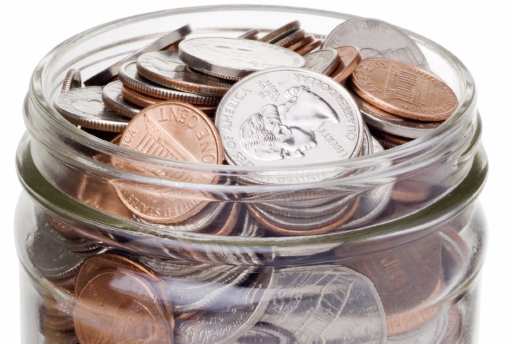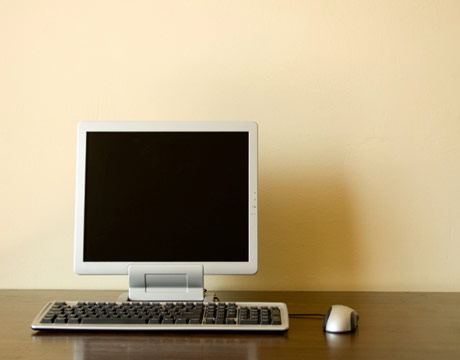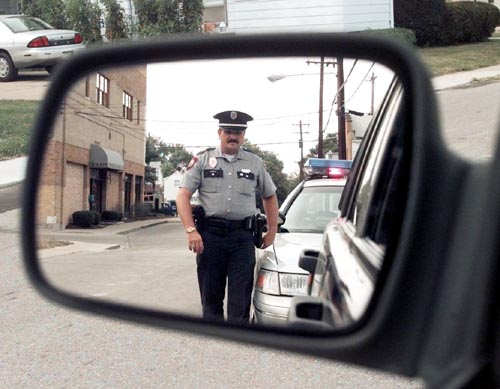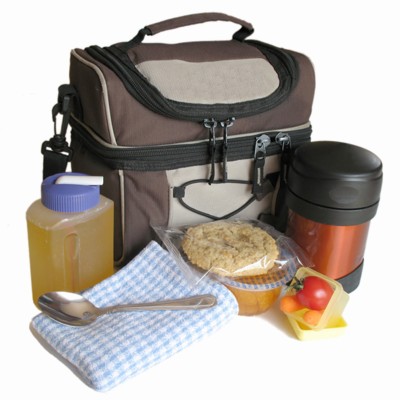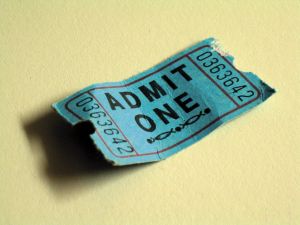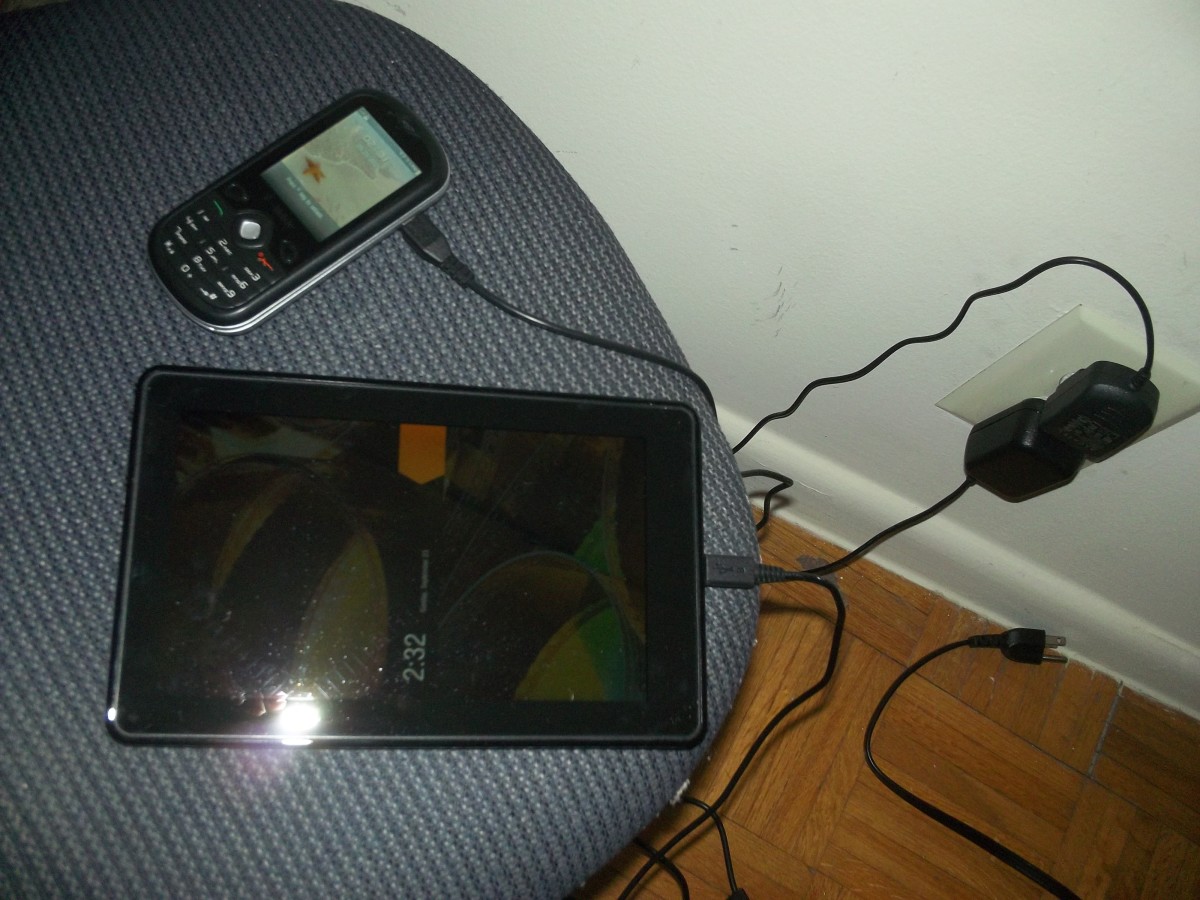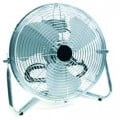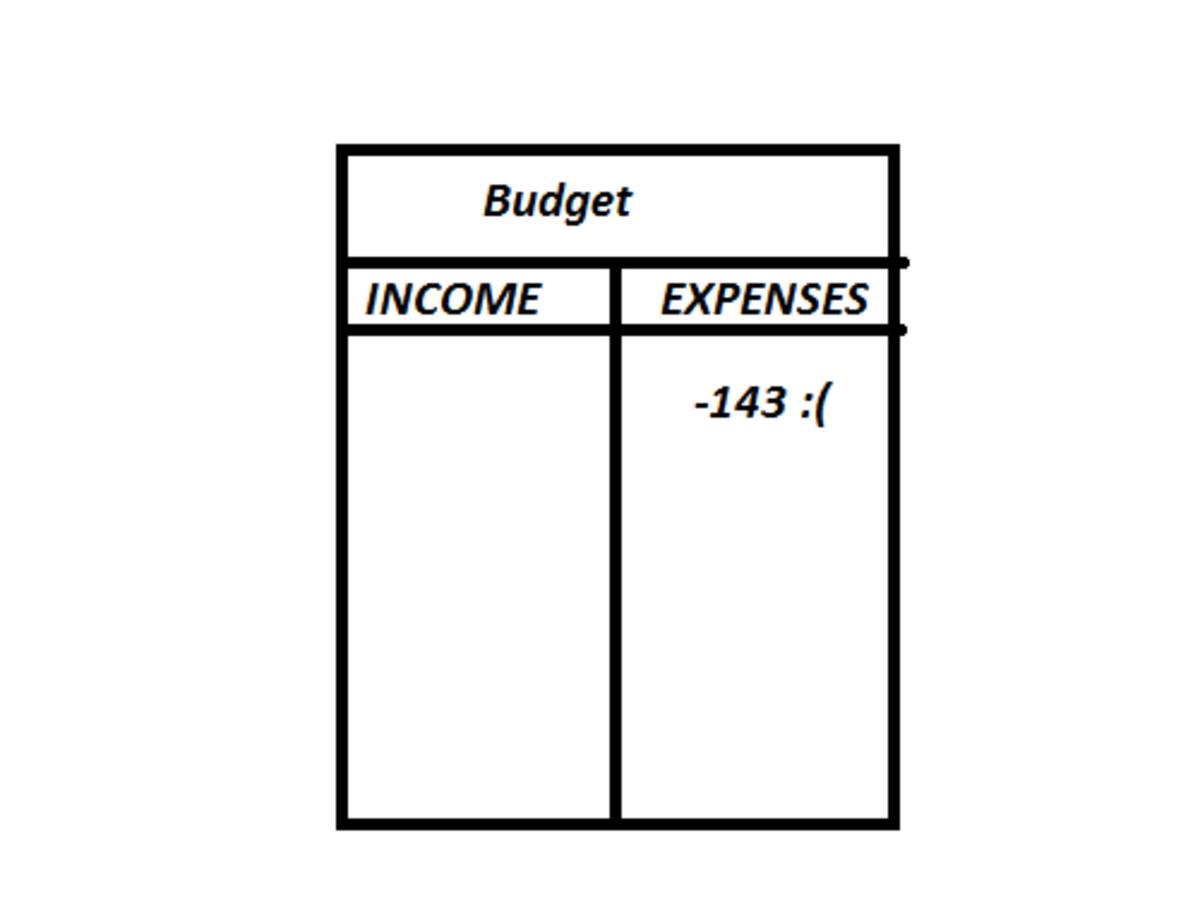Simple Things You Can Do To Save Money
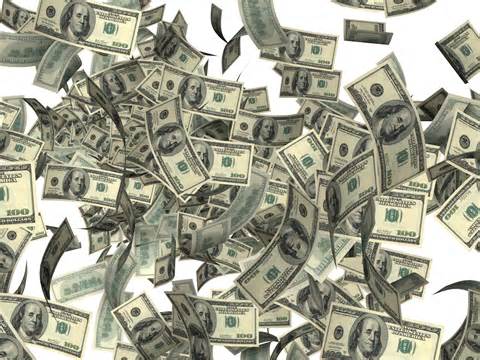
Money, It's What I Want
We all want more money, and a lot of us could really use more money. So, what to do? Get a second, or third, job? Sell all of your possessions on EBay or Craigslist? Sell a kidney on the black market? Maybe, but then again...
NO!!! You don't need to do any of those things! However, there are a lot of things that you can do to save a little money, here and there. Some of them are very simple, and cost you absolutely nothing, aside from a few seconds of your time. Some of them can even be a lot of fun! You can get your whole family involved, and maybe you can use some of that saved up money to do something fun at the end of the year, or at least have a little breathing room in between paychecks.
Money Saving In Your Own Home
- Plant your own vegetable and herb garden: With the scares recently involving produce such as tomatoes and spinach, this tip makes sense for several reasons. Packets of seeds, or flats of plants can be purchased very inexpensively. Grow your own vegetables! Think about what you and your family eats the most. Focus on foods that you can grow in your area. If you live in Alaska, don't try to grow pineapple unless you have a greenhouse. Warmer climates are great for this, because things can be grown throughout the entire year. Depending on the amount you want to grow, you may even have enough to share with family and friends, and save them a little money as well. You could go as small as a window box herb garden, or as big as a large garden, with rows of vegetables and herbs of various types. It's all a matter of how much space you have available, and how much work you can put into it. Freezing or canning the extras is a great way to make those seasonal vegetables last a little longer, as well. Money saved here depends on a lot of factors; what you grow, how much you grow, how much the plants yield, and other factors. Calculating savings is difficult.
- Use less: What exactly do I mean by use less? I mean exactly what I say. Most people use more of certain things than we really need to. I notice myself doing this, as well, and have made it a point to remind myself to use less. I know I have been guilty of using too much laundry detergent when I am washing my clothes. I would fill the cap up, no matter how dirty my clothes were, or how large my load of clothes was. If you remind yourself to use a little less of everything, you will stack up the savings in the long run. This tip can apply to; laundry soap and fabric softener, dish soap and dishwasher detergent, hand soap, shampoo and conditioner, toilet paper and paper towels, and toothpaste. If you used just a little bit less of all of these things, they would last a lot longer, and would save you a decent amount of money. Take hand soap or toothpaste, for instance. You only need a pea-sized amount of either to do the job. Now getting your kids to work with you on this one may be a bit harder. I know I am always telling my daughter that she uses too much hand soap. Following the 'use less' mindset, could save you anywhere from $30 a year, to $100 a year, depending on what you buy, and how well you apply it.
Electronics And Appliances
- Shut down your computers: While this may sound like blasphemy to many of us hubbers, I am serious. If you plan on being off of your computer for longer than an hour, shut it down. I noticed that the computers in our home were running twenty-four hours a day, seven days a week, and one of them is hardly ever used. I started shutting them down before I left the house and before I went to bed. Not only are they not using up electricity when they are shut down, they also don't put out the heat that they do when they are running. We have two computers in one room, and that room is usually ten degrees warmer than the rest of the house. This may be a fine way of keeping your bedroom extra warm and toasty on cold winter nights, but in Florida, it's just annoying. This tip could save you about $30 per year.
- Unplug: I mean it. Unplug the stuff you aren't using. Only plug in your chargers when you need to charge something, use power strips where you can shut off the switch, and cut power to things you aren't using. Basic rule here is, if it doesn't have a power switch (like a lamp or your toaster), unplug it when you aren't using it. This can apply to your coffee maker, as well, if it has a clock. I have a clock on my stove, and my microwave, so I don't think I need that clock on my coffee maker. You would be surprised to know how much power that phone charger is pulling, even when it isn't charging anything. They are tiny, little, electronic vampires. While, it won't save you hundreds of dollars, depending on how often you remember to follow this advice, and how many things you apply it to, you could save about $50 a year, maybe more.
- Your Television: A really simple thing you can do is to turn down the brightness on your televisions. I know, this hardly seems like anything, and you are thinking, "How on earth could this save me money?" Well, it's pretty simple. A television is kind of like a light on a dimmer switch, the brighter the light, the more power it needs. Turning down the brightness about a quarter to halfway, instead of full bright, could save about $50 a year, depending on how many televisions you have in your home, and how often they are on.
- Keep your appliances clean: Everything works better when it is clean and well maintained. That goes for your appliances, as well. Keep your oven clean, and if it is a gas range, check to make sure that the gas line is in good condition. Clean that little grate on the bottom of your refrigerator. Check the hoses on your washer. Keep the exhaust line of your dryer clean. They even sell tools to clean out the lint trap on your dryer. Not only will this keep your dryer running more efficiently, a clogged dryer vent can sometimes even cause a fire. Most appliances sold today are far more energy efficient than those made years ago, so if you have an old, outdated appliance, it is even more important for you to keep it clean and well maintained. If you can afford to replace those older appliances, that will also save you money in the long run. Look for "Energy Star" rated appliances. They are designed to use less electricity. Just keeping your lint trap clean, can save about $35 a year. Add in the other appliances, can save you another $25-50 a year.
Heating and Air Conditioning
- Check your heating and cooling system: Along the same lines as the appliances, checking your heating and cooling system can save you some money. Check your intake filter. If it's disposable, you need to replace it every couple of months. If it's reusable, it needs to be washed out every month or so. A clogged filter will make your system work harder than it needs to. Get basic maintenance done on the system at the very least, once a year. If you know how to do it yourself, it will save you money, but if you don't, don't attempt to do it yourself. The condenser for your air conditioning needs to be cleaned out once or twice a year. All of these things will save you money in the long run, because they will keep everything running smoothly and more efficiently. Keeping your heating an cooling system clean can save about $75 a year.
- Check Your Thermostat: Investing in a good digital thermostat is a good idea, because it can be preset with scheduled temperature settings, using less energy when you are away from home. For optimum performance, set your air conditioner at 78 or 79 degrees. For every degree below that, your air conditioner uses 3-4% more energy. So, say you use your air conditioning for 5 months out of the year (we use it more than that here, but let's run with that). 3-4% more in utility costs can add up. Let's say your electric bill is $200 for those months, and you decide to turn the A/C up to 78 degrees. That only saves you $30 over those five months. But, let's look at heating costs, as well. The best temperature to set your thermostat in the winter is 68 degrees. For every degree above that mark, you are costing yourself the same 3-4%, so, let's say you use your furnace for another 5 months. That's another $30 saved.
- Close your closet doors: I am being serious here. Why are you wasting money and electricity to keep your closet warm? I don't get dressed in my closet, so there is no need for it to be heated or cooled. Why heat or cool that few extra square feet of space? Not only will you save money and cut your energy use, you will keep your clothes from absorbing odors from your house, from things like your pets and cigarette smoke (if you do smoke). Besides, with all the junk that is shoved in my closet, I really don't want to look in there anyway. This tip can save you around $50 a year, depending on the number, and size of your closets.




Other Utility Savings
- Change your light bulbs: We have all heard that switching to compact fluorescent bulbs, or the newer LED bulbs, saves money. It is true. We have also seen the drastic difference in price between these energy saving twisty wonders and the boring, old, regular light bulbs. But, think of it this way. Compact fluorescent bulbs last a long time and cut your energy costs by a decent amount. (Don't ask me for exact figures...I hate math!) I do know that regular light bulbs don't last very long at all. In one house I lived in, I was changing light bulbs on a weekly basis, or at least it seemed that way. Just do what I do; buy one compact fluorescent bulb every time you go shopping, or one every other week. One bulb only adds a couple of dollars to your weekly grocery bill, and over a short period of time, you will have replaced all the bulbs in your house with longer lasting, energy saving compact fluorescent bulbs. Most of the lights in my home have compact fluorescent bulbs now, and I can't remember the last time I changed a light bulb. Replacing all of your incandescent bulbs for compact florescent bulbs, or LED's, can save around $150 or more a year.
- Share a shower: This is a more fun way to save a little money. Where I live, we have city water, so we pay for our water usage, as well as the electricity needed to heat the water. Why shower alone? It's a lot more fun to shower with your partner, and it saves on water and energy costs. Who knew that saving money could be so much fun?? If you shared a shower, at least once a week, you could save around $25 a year, depending on your utility costs, and if you have a well or city water.
- Get A Rain Barrel: Not only will you be conserving water, and doing your part for the environment, you will be saving money. A rain barrel will run you about $100 or more, depending on the type you get, but they are easy to use. Simply place the rain barrel below a gutter downspout, and attach a hose to the spigot. Using the collected rain water, rather than the city water (if you have city water) to water your garden and lawn could save a lot of money. The amount saved depends on rainfall amounts in your area, how often you water your plants, how much you have to water, and things like that. Obviously, this isn't possible if you live in an apartment, and some areas do not allow you to collect rain water, though I have no idea why. Also, some areas get little, to no, rain. I lived in the desert for a while, and it rained there maybe a few times a year. Depending on these factors, you could save maybe $10 a year, maybe more. Our water bill is fairly low, and a rain barrel would help a little.
- Laundry: Doing laundry is a necessity for all of us. Many of us have our own washer and dryer in the house. It's amazing how much energy and water are used to do laundry. When you go to wash your clothes, make sure you have a full load, and wash it on the smallest load size you can. You don't need to use the "extra large" setting unless you are washing something really large. The medium setting works for most loads of laundry. Also, wash all of your clothes in cold water instead of hot or warm. Most clothes labels say to wash in cold water, anyway. These two tips can save you about $45 a year. Drying your clothes is the costly part of doing laundry. The dryer uses a LOT of energy to dry your clothes. If you have the ability to, use a clothesline to dry your clothes. They smell nicer, and it costs nothing to dry them on the line. Of course, this is not always possible, due to weather, especially. If this is the case, partially dry them in the dryer and then hang them up to dry the rest of the way. You can't do this with everything, say towels or socks, but shirts, and even pants can be hung up on a hanger and hung from the shower curtain rod to dry the rest of the way. It also helps to prolong the life of your clothes. Let's say you use a clothesline part of the time, and cut down on using your dryer when you can. That could save you about $65 a year, maybe more.
More Tips For Saving Money
- Tips For Saving Money On Groceries
Saving money is more important now than it has been for a long time. Groceries are one thing you can't live without, so I have put together a few tips on saving yourself some money on that huge grocery bill.



More Ways to Save Money
Need some more ideas for saving money? OK, well, since you asked so very nicely; I have a few more ideas for saving money. Hopefully, they will be useful to you.
- SLOW DOWN!!!: Speeding costs you money, even if you don't get a ticket. Repeated acceleration and deceleration uses up a lot of gas, and the faster you drive, and the more you have to accelerate and decelerate, the harder your engine has to work to get to those speeds, and the more gas you end up using. Driving at the posted speed limit will actually save you money, and it won't really cost you that much time in your normal day-to-day driving. It also prolongs the life of your brakes, since you won't have to hit your breaks as hard, saving you additional money. Also, avoiding those pesky speeding tickets could really save you a lot of money. Savings here are hard to calculate, due to driving distances, gas prices, frequency of driving, etc.
- Brown Bag It: Remember when you took a sack lunch? Yeah, I know. The last time many of us did that, we were a lot smaller, and the food came in a cute, plastic box with cartoon characters on it, and the food was made by some woman who insisted on tucking us in at night, and making us eat our green veggies. Well, why can't we do it now? Aside from the woman tucking you in at night, that is. If you make your lunch and take it with you to work, you can save a lot of money. How much do you spend on terribly bad for you fast food every week? $20? $30? Let's say you spend $30 a week on lunch. That's over $1,500 a year!!! You could take a vacation with that! What sounds like more fun? $1,500 dollars to spend on whatever you want, or 52 weeks of eating fast food for lunch? Making your own lunch will cost you maybe $10-15 a week. I can usually make lunch for myself for about $6 a week. Even those frozen Lean Cuisine meals are cheaper than fast food, and better for you, too. If you made lunch, instead of buying lunch, you could easily save over $1,000 a year!!
- Movie Night: We all love movies. I love going to the theater, getting some not-so-good-for-me snacks, and sitting down in the darkened theater to watch what I hope will be a great movie, preferably a horror movie. But there are a lot of drawbacks from all of that. Going to the movies has gotten more than a little expensive, the food really isn't good for you at all (though the selection has gotten a lot better), the floors are always sticky, and there is usually that one person who talks and makes noise during the whole movie. Why not skip all of that? Have a movie night at your house with your friends instead. Invite a few friends over for a night of movies, food and fun. Have one friend rent a few movies (either agree on the movies ahead of time, or get a few different movies, so everyone is happy), or just take turns picking movies from Netflix. Someone can bring some drinks (alcoholic or otherwise), someone else can make up a few snacks and then everyone sits down and enjoys a great night. You don't have to worry about being quiet, and you can watch what you want, when you want to watch it. And the seats are a lot more comfortable. You could even have themed movie nights. Let's say you go out to the movies once a month, and between tickets, snacks and a drink, you spend about $30. That's $360 a year. If you cut that down to once every other month, and did a movie night at home, instead, you could save about $150 a year.
- Buy things on sale: No, I am not giving you permission to buy everything in sight just because it's on sale. Get a subscription to the local Sunday paper. You know, the one with all the sales fliers and the coupons inside of it? Spending a buck or two, once a week can actually save you a lot of money, and most papers have a Sunday only subscription option. Scan the grocery store and super store fliers for sales on things you know you need. Clip out coupons for things you need, or look for coupons online. Basically, never pay full price for anything! Plan your weekly meals around what is on sale. If pork roast is on sale, buy that. Make a list of what you are going to buy, including the sale price listed in the flier. Bring the flier with you for reference and in case items ring up wrong. If a store is having a great sale on the soda you normally drink, buy a couple extra cases of it, so you don't have to pay more next week, when the price goes back up. I will cover groceries more in depth in another hub. Again, savings here are hard to calculate, but on my average grocery bill, between special sales, and coupons, I save about $25 a week. That's almost $1,300 a year.
- Buy on the cheap: Clothes are expensive. When you can walk into a store and see a pair of jeans for $95, you know they aren't worth that much, so why pay that much? I never spend more than $30 on any article of clothing, and that includes shoes. I shop the clearance sections of stores, I look for great sales, and I shop stores like Old Navy, Target, Kohl's and Forever 21, and I find great clothes for a lot less. I found a cute pair of boots on clearance for $9!! They were originally $90 boots! I also shop stores like Ross, Marshall's and T.J.Maxx. I have found some great things at those stores. I found a purse that I had seen at Macy's for $95, and I got it for $25. If you find a great top at a store, but it's a little more expensive than you are willing to pay, take a picture of it on your phone, save it with the name of the store, and come back in a week or two. This not only gives you time to make sure that you really want it, but chances are, when you go back, it will be marked down at least a little bit. Savings depend on how often you shop, the types of sales you can find, and so many other things, that it is impossible to calculate. You could save $10 a year, or you could save thousands.
- Cheap dates are fun: Candlelight dinners are romantic, but if you go out to a romantic restaurant, the check can be a real mood killer. Either make your partner a nice meal at home, light some candles, play some soft music, and have a romantic night in, or plan simple, inexpensive dates that are more fun than a stuffy, formal restaurant. Take a nature walk, take in an art exhibit, or something along those lines. A lot of cities and towns have various free events going on during warmer months that would be great for a fun, cheap date. My fiance and I recently spent some time walking on the beach at sunset. It cost us nothing, it was a lot of fun and it was very romantic. Our town also features free concerts once a month, during the warmer months of the year. We have seen several bands, had a great night out, and all for free. If you average one nice dinner a month, at about $100 each, that figures out to be $1,200! If you cut these down to three times a year, instead of 12, that's a savings of $900!!
- Spoil your appetite: I know, our moms always told us not to ruin our appetite by eating before dinner, but in this case, go ahead! If you do plan on going out to eat. Let's say a group of friends has invited you out to a local restaurant for dinner, or you have a business dinner that you can't skip. Eat something before you go. Not a full meal, just a sandwich or something else small. That way, when you do go out, you aren't starving. We all know how long it can sometimes take to even get someone to take your order. If you aren't as hungry, you are less likely to order something large and spend a lot of money. You may only order a small entree or an appetizer instead of an appetizer, a full entree and a desert. This could save you maybe $15-30 per trip to the restaurant, depending on where you go, what you order, etc. That turns into significant savings over the course of the year; up to $60-200 a year.
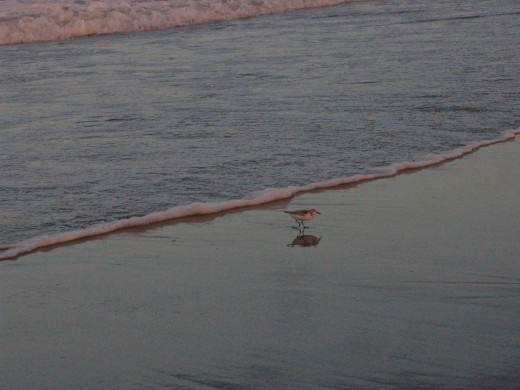
Add It Up
Following these tips could save you a LOT of money. I added it up, and if you follow all of these tips, even to some extent, you could save you up to, or even over, $4,000 a year. That is not taking into account the tips on my other hub about saving money on groceries, which could save you even more.
What could you do with an extra $4,000? You could take a nice vacation, pay down your credit cards, pay down your mortgage, or set money away for your children's college fund, or for your own retirement. Imagine what would happen to that money if you invested it into your 401K or IRA.
Some of these tips require some work, or some output of money to start with, but many of them can be done without much thought, and without you really missing anything. Even implementing some of these steps could save hundreds of dollars a year.
© 2009 Anna Marie Bowman

